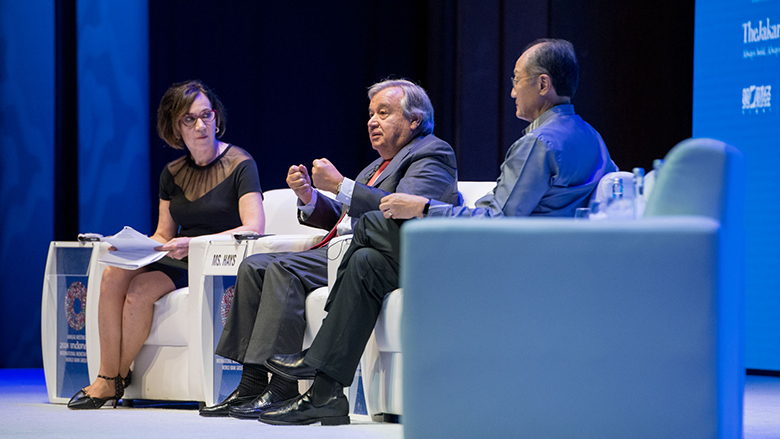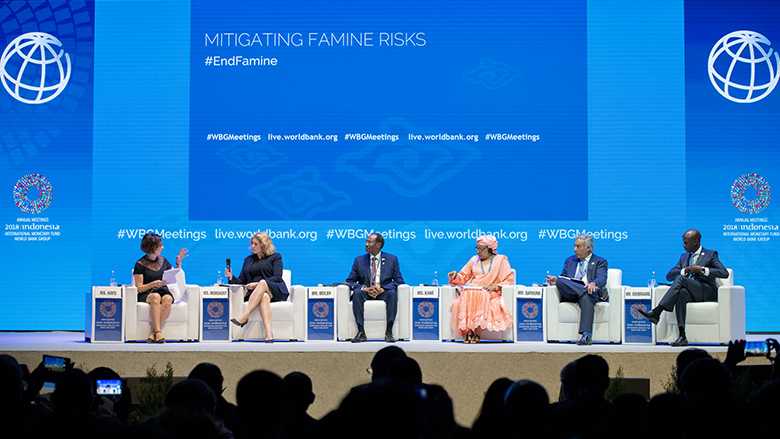On October 13, during the World Bank-IMF Annual Meetings in Bali, Indonesia, World Bank Group President Jim Yong Kim and United Nations Secretary-General António Guterres opened a high-level panel discussion highlighting the Famine Action Mechanism, a new global mechanism dedicated to preventing future famines.
According to Guterres, while efforts to reduce overall poverty are working, the risk of famine continues to threaten more people.
“We are witnessing growth in the world. We are witnessing even a reduction in absolute poverty, but hunger has been on the rise in recent times,” Guterres said. “We need to have a systematic capacity to detect where famine can occur, to prevent it, and then to be able to create conditions of resilience in societies – to make sure that we are able not only to respond to crisis, but to make sure that those crises will not occur.”
“What’s interesting about FAM is that you bring together three things,” Guterres said. “You bring together data – analysis and capacity to detect situations, financing, and implementation. So, the three things, instead of being separated, are put together in a collective response that prevents, reacts, and creates resilience for the future.”
Launched by the UN, World Bank and International Committee of the Red Cross (ICRC) at the UN General Assembly meetings in New York in September, the FAM is a global partnership that seeks to address the risks of famine before they become crises.
“What if we had intervened [earlier]?” asked Kim reflecting on famines in 2017 that affected countries across Africa and the Middle East. Currently, according to Kim, it can take precious time to get the funds needed to get aid on the ground, resulting in losses of resources and lives.
The FAM includes support from Amazon Web Services, Google and Microsoft Corp, who are working to improve data and analytics aimed at better predicting famine. With this enhanced analysis, the FAM will pre-arrange financing to allow the international community to respond more quickly when the risk of famine is high. It also will help mobilize more multi-year financing to provide predictable, large scale investments that tackle the root causes of famine and build resilience to future shocks.
With the FAM, Kim said, “we will have made pre-existing arrangements so that if [crisis] hits [a certain] level, the World Bank and others will make the money available - and they’ll be ready to go. That certainty makes all the difference in the world.”



